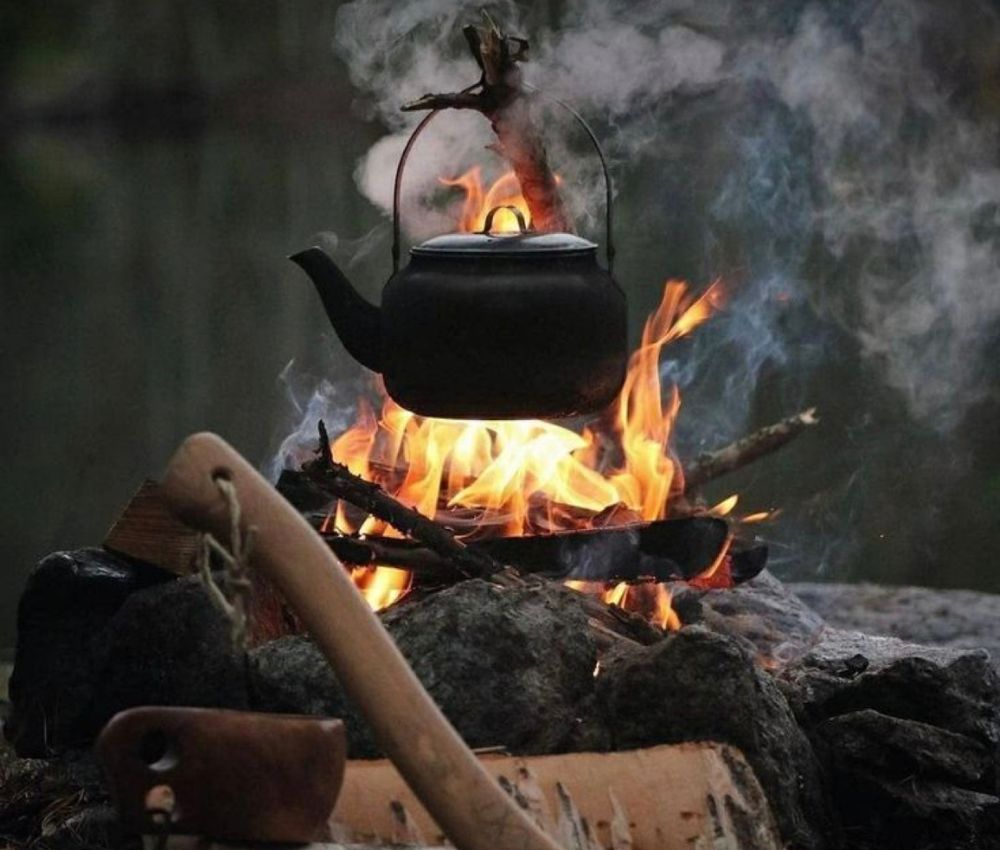Navigating Worlds

Navigating Worlds
Nau mai haere mai to another cuppa and meaningful kōrero. We hope you all enjoyed your Matariki long weekend - we sure did. We kicked off this week's discussion with the sharing of Matariki stories from our group. It was lovely to hear how some celebrated and shared kai with whānau and friends; “we started inviting a whole bunch of friends and neighbours over, everybody brings a dish and hangs out”.
Matariki celebrations and shared kai are synonymous, as was the experience of one of our group members who attended - “a really cool school community gathering. There was kai, hāngi”. One of our members decided to gift kai like seafood as a gift to their whānau. Some chose to stay at home and stay warm with their whānau where they felt happy and relaxed - “staying at home and letting all the events pass me by”. Another added - “It’s really nice staying home and doing nothing. Staying comfy in my pyjamas all day”. While others took the time to reflect on the past year. A visitor expressed this time was perfect for - “A quiet reflection”. Another expressed that Matariki for them was - “A moment of time to take out to reflect last year…I mean to like centre myself and reflect on what I'm grateful for now and the present, and then to spend a bit of time looking ahead to what I see the next year will bring it was fantastic, because you don't often have a lot of time to do that reflection. And I found that really cathartic.” Our Matariki experiences and reflections were filled with moments of joy, mindfulness, good kai and connectedness.
Re-visiting and Expanding on the idea of Between-Worlds
The beautiful thing about sharing key learnings and shared experiences from our weekly yarns in our 100,000 Cups of Tea Newsletter, is that our community can read up on what was discussed if they were unable to make it to an online cuppa. A few of our regulars who missed our last online cuppa expressed keen interest in re-visiting the notion of Between-Worlds. So, a couple of our visitors recounted a few points from this particular discussion to help us recap on what stood out for them - “It was about people who live between worlds or sometimes not knowing which one you’re legitimately from”. One guest recalled -“I remember that between world as almost an identity in itself”. While another explained - “we were talking about navigating worlds, so multiple worlds, and people were talking from experience and elaborating on how they sometimes switch between worlds and how they sort of manage different contextual situations”. Our group was eager to explore these ideas further and share their perspectives on what switching between Two-Worlds looks like for them.
Identity-making and Code-switching
As the sharing continued it became clear that our visitors experienced Between-World situations depending on which cultural identity they have been exposed to and how closely they associate themselves with that identity, and which identity is more prominent - “I have three potential identities. Which one can I legitimately say is the identity I present as”. Some felt as though they occupied the Between-World space by default at times - “We occupy two spaces, not by choice”. Another described this experience as always being ready to - “code switch”. Whether that be Between-Worlds that are built within societal norms, cultural contexts and workplace culture. This resulted in what one participant illustrated as - “a sort of friction…an intermingling of worlds”, followed by an important question posed to the group around how they navigate those worlds and manage cultural clashes or miscommunications.
Bridging the Gap Together
When dealing with cultural friction or tricky situations, one of our group members shared some valuable advice that was imparted to them - “To take people on a journey…sharing stories. And it's really just dropping gems, but taking people on a journey.” These words resonated with a few of our participants who sent heart reactions from their screens. One happily shared an eye-witness account of a colleague who takes people on a journey through Intercultural Facilitation by using the Naive Inquirer role of drawing out people’s thoughts, assumptions, intentions and more by asking questions. They recollect how this person - “ in meetings… there's a lot of questioning that you can ask to see where something is coming from. I love the naive inquiry. And I'm a real questioner. Like, if I don't understand something, I'm trying to understand where it's coming from”.
Being Authentic Connectors
We seemed to land on a shared understanding that our Between-Worlds can be complex, and in that complexity, we can value the difference, and learn to work with it.
Some shared parts of our world with connection to our ancestors and cultural grounding - “we have this power to actually fall back on our own ancestral intelligence, our customs and that's really awesome”. Other Between-Worlder’s who observed such cultural grounding in-action shared that - “it was the most powerful experience I have ever had, feeling the embodiment of ancestral intelligence”. Between-World experiences like these - though different, are exceptional examples of how seemingly opposite cultures and ways of being can truly co-exist and be appreciated.
If you’re someone who enjoys interesting and meaningful kōrero, yarns, and talanoa in a safe space like this - then come along to our next 30 minute cuppa.


